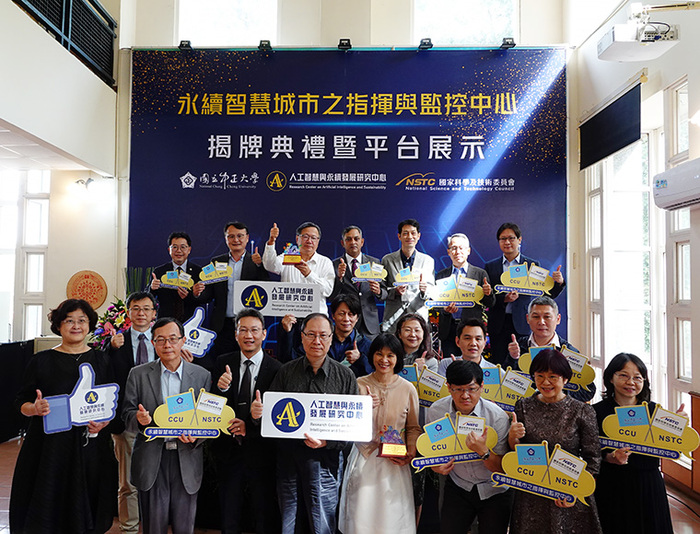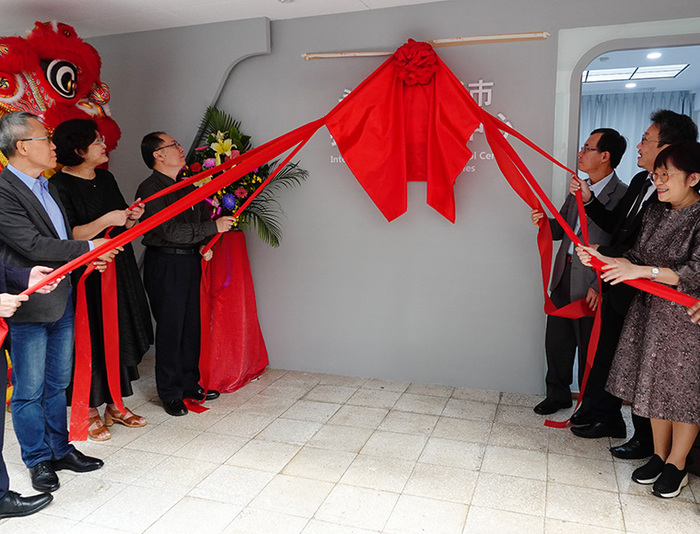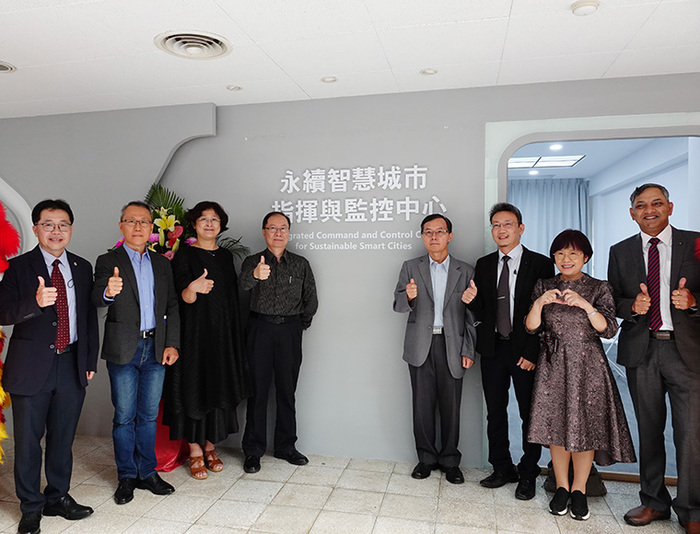To challenge the new global trends, the first “Designed of Integrated Command and Control Center for Sustainable Smart Cities” is established.




How to build a resilient smart city has become a top priority for countries all over the world. National Chung Cheng University (CCU) was awarded the national program subsidy of “Responding to National Important Challenges of Artificial Intelligence project” by the National Science and Technology Council last year, and became the only representative of smart city project team in 13 projects in Taiwan. The Research and Development office was established the country's first “Designed of Integrated Command and Control Center for Sustainable Smart Cities” on November 7th. In the future, the center will gather data optimization and specific technologies from the industry, government, academia, and research. It is hoped that the public and private institution will join hands to prosper the global sustainable development.
Witnessed by distinguished guests, who are CCU’s vice president Mr. Zhang, Mr. Hao, and Ms. Tsai, the president of TATA Consultancy Services Limited Taiwan branch (TCS), Karthigeyan Sethumadhavan, the chief data officer, Chia-Hu Chang of VPON Big Data Group in Taiwan and the vice director-general Yi-San Huang from Chiayi City Police Bureau, CCU’s “Designed of Integrated Command and Control Center for Sustainable Smart Cities” officially open. Mr. Zhang mentioned that there are roughly 55% of the world’s population is concentrated in metropolitan areas nowadays, and by 2050 it is estimated that 68% of the population will live in metropolitan areas. In line with the 2050 Net-Zero carbon emission policy, the requirements for smart cities will become increasingly stringent. The center hope that through information and communication technology and human experience can bring greater benefits to the public.
The “Designed of Integrated Command and Control Center for Sustainable Smart Cities” is an interdisciplinary team led by Pao-Ann Hsiung, chief Information Officer of CCU. The members are from National Chung Cheng University, National Taitung University, and National Yunlin University of Technology, and there are nine teachers and eight groups in total. In addition, teachers in CCU are from the College of Engineering, Social Sciences, Management and Law. At present, the cross-disciplinary team has not only cooperated with relevant units of the Chiayi County and City’s Government, but also with the leading Asian Big Data Group, VPON. They combined the unmanned aerial vehicle (UAV) and AI, based on big data, to jointly solve the global development challenges of smart city command and control centers faced.
In the past year, CCU cross-disciplinary team has focused on the development of AI technology in terms of transportation and environmental aspects, including smart city smart cities data governance, multi-camera vehicle tracking, fog and rain removing in images, visible hyperspectral imaging for air/water pollution monitoring and trustworthy AI inspection. Dr. Pao-Ann Hsiung said that the team is more concerned with issues such as privacy, personal information, and social impact. Thus, the AI technology used is trustworthy AI. Moreover, whether it is collected data or models, it is fair, safe, and without social doubts. He also mentioned that the team will use artificial or technological methods to check in advance, for example, when AI detects a vehicle or people, it will be blurred in real time.
In response to the trend of global sustainable development, smart cities also need new governance approach. Dr. Pao-Ann Hsiung pointed out that the establishment of Command and Control Center for Sustainable Smart Cities will not only build a complete chain of cooperation between industry, government, academia, and research, but also join the government of Chandigarh, India, to present the project to the international stage. They even combined with advanced AI technology and the United Nations Sustainable Development Goal SDGs 11, setting up a new model of AI command and control center.

